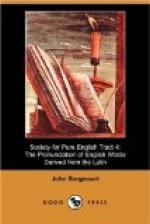’Absurd uses with chief, &c.: The chief protagonist is a young Nonconformist minister. / Unlike a number of the leading protagonists in the Home Rule fight, Sir Edward Carson was not in Parliament when.... / It presents a spiritual conflict, centred about its two chief protagonists, but shared in by all its characters.
’Absurd plural uses: One of the protagonists of that glorious fight for Parliamentary Reform in 1866 is still actively among us. / One of these immense protagonists must fall, and, as we have already foreshadowed, it is the Duke. / By a tragic but rapid process of elimination most of the protagonists have now been removed. / As on a stage where all the protagonists of a drama assemble at the end of the last act. / That letter is essential to a true understanding of the relations of the three great protagonists at this period. / The protagonists in the drama, which has the motion and structure of a Greek tragedy (Fy! fy!—a Greek tragedy and protagonists?).
’Confusions with advocate, &c.: The new Warden is a strenuous protagonist of that party in Convocation. / Mr ——, an enthusiastic protagonist of militant Protestantism. / The chief protagonist on the company’s side in the latest railway strike, Mr ——. / It was a happy thought that placed in the hands of the son of one of the great protagonists of Evolution the materials for the biography of another. / But most of the protagonists of this demand have shifted their ground. / As for what the medium himself or his protagonists may think of them—for etymological purposes that is neither here nor there.
’Perhaps we need not consider the Greek scholar’s feelings; he has many advantages over the rest of us, and cannot expect that in addition he shall be allowed to forbid us a word that we find useful. Is it useful? or is it merely a pretentious blundering substitute for words that are useful? Pro- in protagonist is not the opposite of anti-; _-agonist_ is not the same as in antagonist; advocate and champion and defender and combatant are better words for the wrong senses given to protagonist; and protagonist in its right sense of the (not a) chief actor in an affair has still work to do if it could only be allowed to mind its own business.’
* * * * *
AMERICAN APPRECIATION
We are glad to reprint the following short extracts from the New York Times Book Review and Magazine, September 26, 1920.




